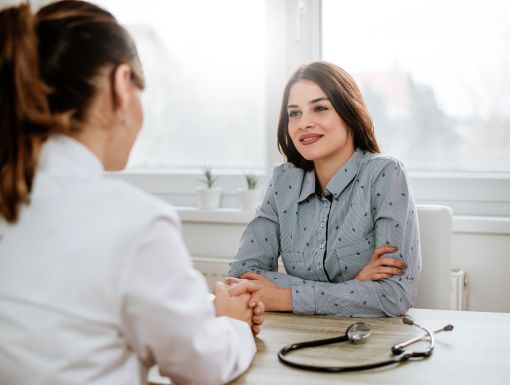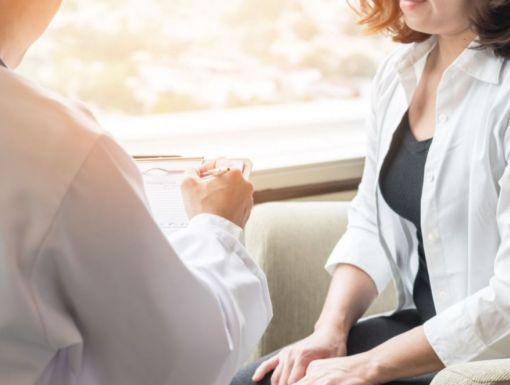
9 Symptoms of Endometriosis Every Woman Should Know About
Are you experiencing pelvic pain, irregular menstrual cycles or even digestive issues? If so, you could be one of the millions of women who have endometriosis.
Endometriosis is a disease in which tissue, similar to the lining of the uterus, grows in other places in the body. It is one of the most common gynecological diseases, and its primary symptoms include pain and infertility. This condition impacts 11% of American women between 15 and 44-years of age and is especially common among women in their 30s and 40s.
Endometriosis, sometimes called "endo," gets its name from the word endometrium, the tissue that normally lines the uterus or womb. Endometriosis is often found on the ovaries, fallopian tubes and the outer surface of the uterus. Other growth sites can include the vagina, cervix, vulva, bowel, bladder or rectum. Rarely, endometriosis appears in other parts of the body, such as the lungs, brain and skin. Endometriosis growths are benign (not cancerous) but can still cause problems.
What are the symptoms of endometriosis?
The symptoms of endometriosis can vary, but many women with this condition experience:
- Painful menstrual cramps, which may get worse over time
- Pain during or after sex
- Pain in the intestine or lower abdomen
- Lower back pain
- Painful bowel movements or painful urination during menstrual periods
- Heavy menstrual periods
- Premenstrual spotting or bleeding between periods
- Problems getting pregnant
- Stomach and digestive issues (constipation, bloating, nausea)
If you have symptoms of endometriosis, it’s important to discuss them with your doctor. Your OB/GYN will talk to you about the best course of action. They may prescribe medication or perform one or more of the following procedures to determine if you have endometriosis:
- Pelvic exam: Your doctor will feel for large cysts or abnormalities in the pelvis during a pelvic exam. Smaller areas of endometriosis are harder to feel.
- Imaging test: Your doctor may do an ultrasound to check for ovarian cysts from endometriosis. The doctor or technician may insert a wand-shaped scanner into your vagina or move a scanner across your abdomen. Ultrasound tests use sound waves to make pictures of your reproductive organs. Computed tomography (CT) and magnetic resonance imaging (MRI) are other common imaging tests that can take a picture of the inside of your body.
- Laparoscopy: Laparoscopy is a type of surgery that doctors can use to look inside your pelvic area to see endometriosis tissue. Surgery is the only way to be sure you have endometriosis. Sometimes doctors can diagnose endometriosis just by seeing the growths. Other times, a small tissue sample is needed to study under a microscope to confirm the diagnosis.
It’s not completely clear what causes endometriosis, but there are several issues that are believed to be contributing factors:
- Genetic factors: Endometriosis can run in families and may be inherited in the genes.
- Immune system problems: A faulty immune system may fail to find and destroy endometrial tissue growing outside the uterus. Immune system disorders and certain cancers are more common in women with endometriosis.
- Hormones: The hormone estrogen appears to promote endometriosis.
- Surgery. During a surgery to the abdominal area, such as a Cesarean section or hysterectomy, endometrial tissue could be picked up and moved by mistake. For instance, endometrial tissue has been found in abdominal scars.
There is no cure for endometriosis, but treatments are available for the symptoms and problems it causes. If you are not trying to get pregnant, hormonal birth control is generally the first step in treatment. This may include:
- Extended-cycle birth control (you have only a few periods a year) or continuous cycle birth control (you have no periods). These types of hormonal birth control are available in pill form or by injection and help stop bleeding and reduce or eliminate pain.
- Intrauterine device (IUD) to help reduce pain and bleeding. The hormonal IUD protects against pregnancy for up to seven years, but the hormonal IUD may not help your pain and bleeding due to endometriosis for that long.
Hormonal treatment works only as long as it is taken and is best for women who do not have severe pain or symptoms.
Surgery is usually chosen for severe symptoms when hormones are not providing relief or if you are having fertility problems. During the operation, the surgeon can locate any areas of endometriosis and may remove them. After surgery, hormone treatment is often restarted unless you are trying to get pregnant.
It’s important to have regular visits with your OB/GYN. Your doctor can work with you to develop a plan tailored to your needs.
Learn more about women’s services at Ochsner. To learn more about Dr. Wyeth Lawson, or to make an appointment, click here.



